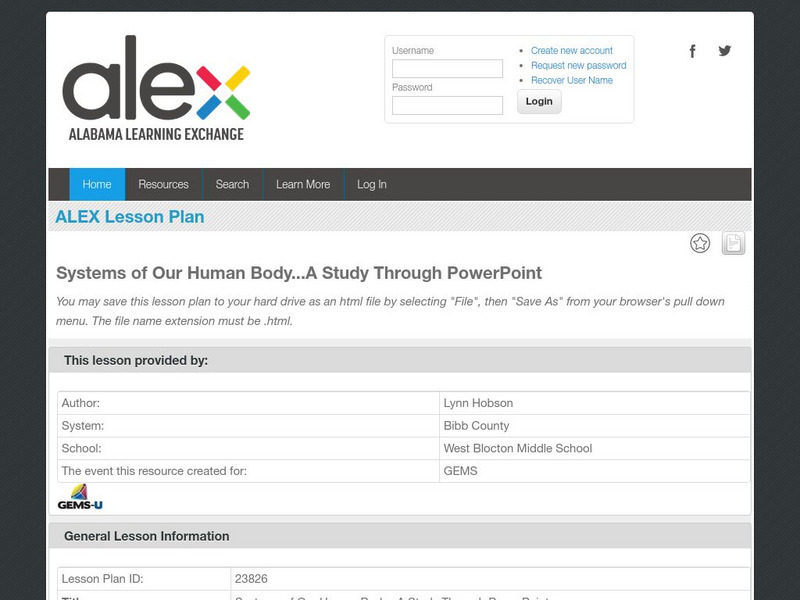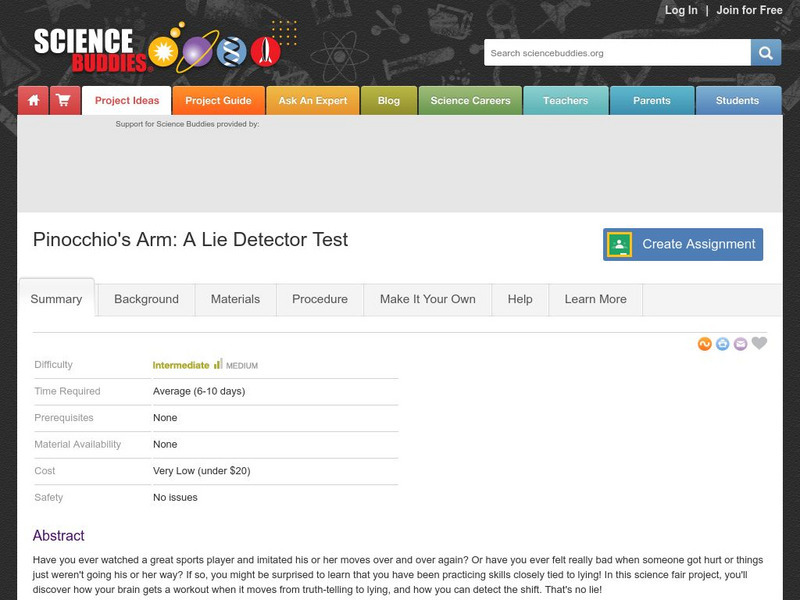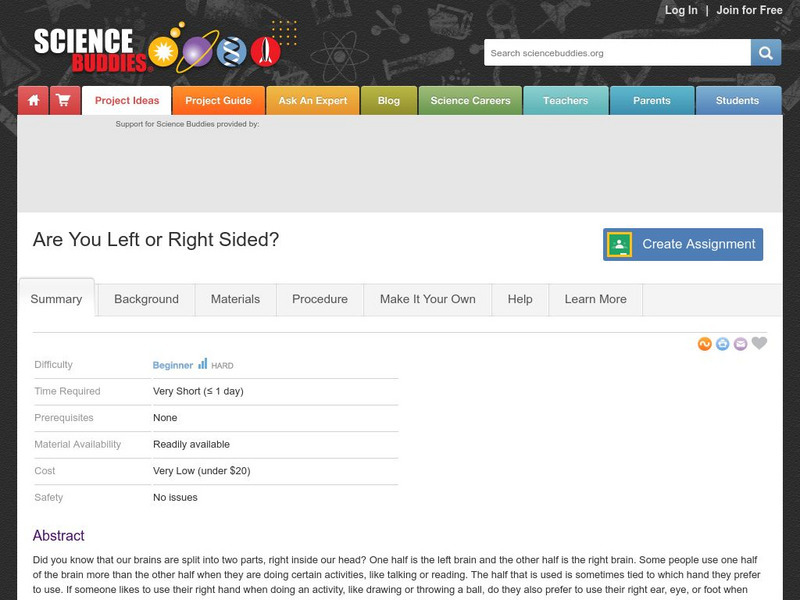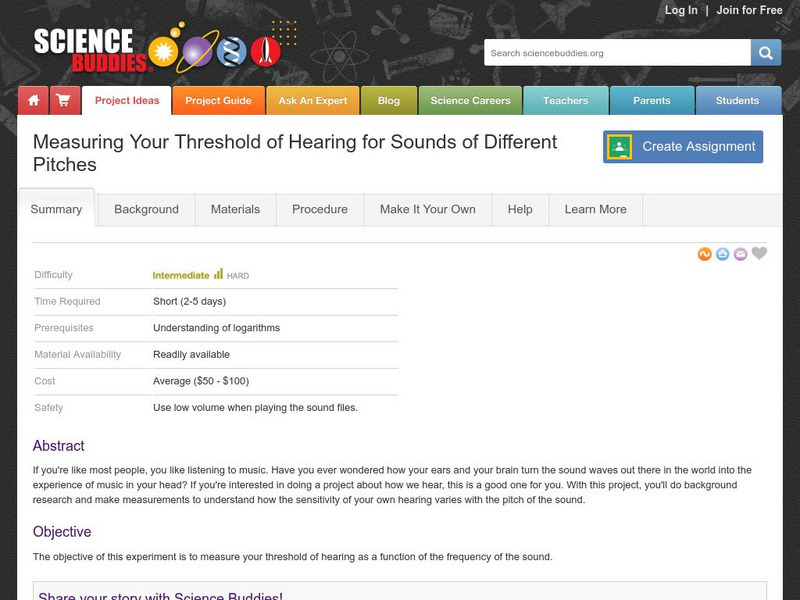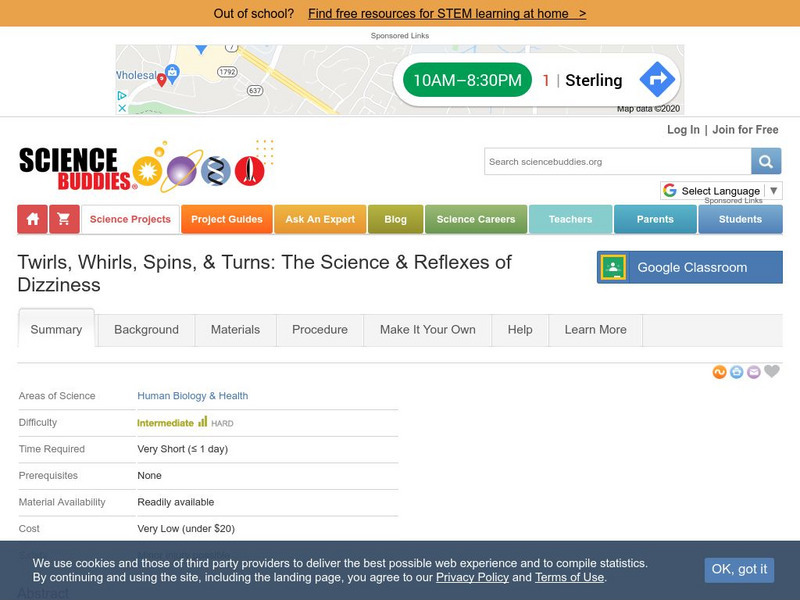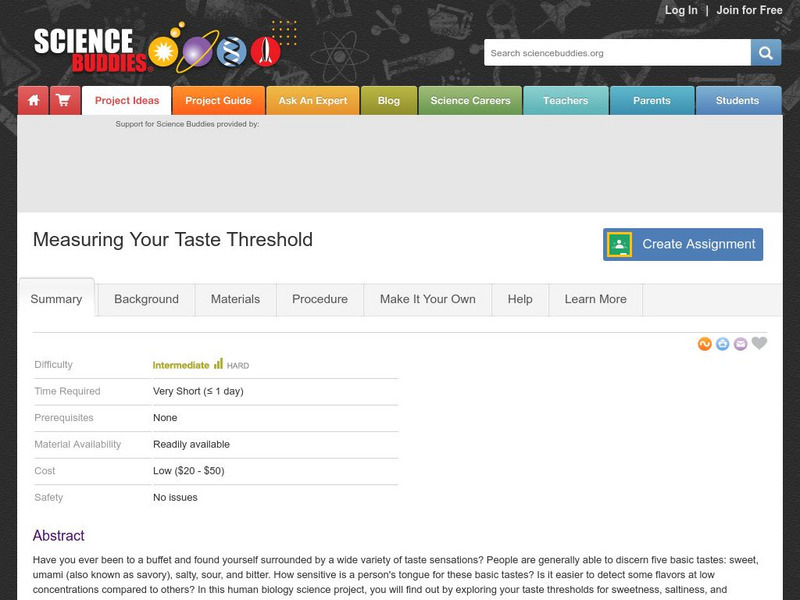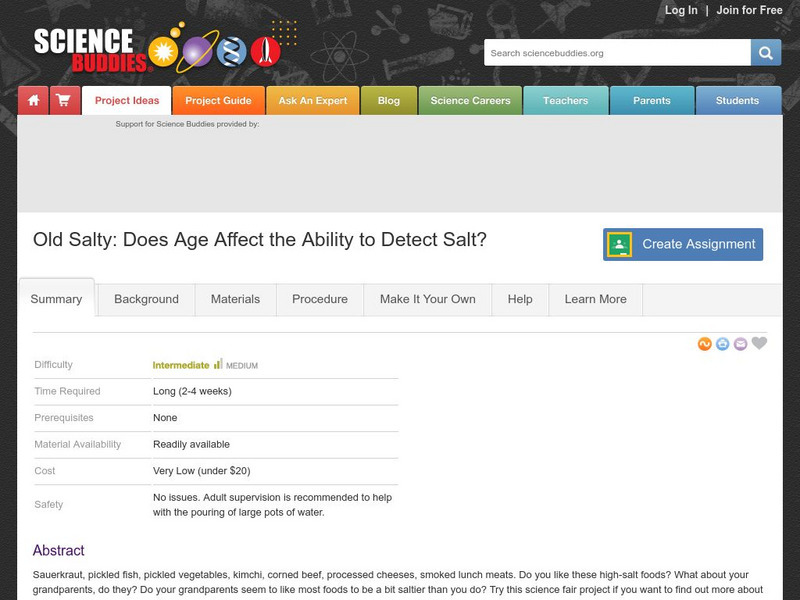Science Buddies
Science Buddies: Can Your Body Temperature Tell the Time of Day?
If you have ever had to adjust to a new time zone, you have noticed that it takes a while before you start to feel normal again. By shifting your sleep and activity schedule, you have altered the pattern of your body's circadian rhythms....
Alabama Learning Exchange
Alex: Systems of Our Human Body: A Study Through Power Point
This is a student-led exploration of the systems of the human body, through technology. Students will work cooperatively to develop a PowerPoint presentation that will thoroughly explain each system. Systems included are: circulatory...
Science Buddies
Science Buddies: Fast Food: Can Peppermint Improve Reaction Times?
Did you know that some teachers give their students a peppermint candy on state testing days? Is it to give the kids sweet-smelling breath? Or are the teachers hoping for something more on the important testing day? In this human biology...
Science Buddies
Science Buddies: Pinocchio's Arm: A Lie Detector Test
You might be surprised to learn that you have been practicing skills closely tied to lying if you have ever seen someone in pain, or mimicked your favorites sports athlete. In this science fair project, you will discover how your brain...
Science Buddies
Science Buddies: Now You See It, Now You Don't! Test Your Peripheral Vision
The survival of our ancient ancestors depended on their ability to use peripheral vision to find prey and to avoid predators. Almost everything we do-from riding a bike, to dribbling a basketball, to reading a book-depends on peripheral...
Science Buddies
Science Buddies: Deep Knee Bends: Measuring Knee Stress With a Mechanical Model
Prosthetic limbs and artificial joints can help people with disease or injury lead a normal life. Sports medicine or physical therapy is also an area that relates to this experiment. Either way, this project serves as a good match if any...
Science Buddies
Science Buddies: Are You Left or Right Sided?
Our brains are split into two parts, right inside our head. One half is the left brain and the other half is the right brain. Each side of your brain controls different parts of your body and most people are more dominant controlling one...
Science Buddies
Science Buddies: Measuring Your Threshold of Hearing
How your ears and your brain turn the sound waves out there in the world into the experience of music in your head, remains a mystery to many, but yet we all experience and even enjoy sounds and music. If you're interested in doing a...
Science Buddies
Science Buddies: Twirls, Whirls, Spins, & Turns: Reflexes & Dizziness
Tilt-A-Whirls, Merry-Go-Rounds, Spinning Tea Cups. Just the thought of these rides is enough to make someone dizzy, or queasy. Learn about spins, turns, and the mixed signals that fire in our brains when the sensation of dizziness takes...
Science Buddies
Science Buddies: Breath of Life: Does Exercise Increase Vital Capacity?
When you take a deep breath, the amount of air you are capable of holding within your lungs, is known as your lung capacity. It is not the same for everyone. This lab asks you to find out if it is possible to increase your lung capacity...
Science Buddies
Science Buddies: The Nose Knows Smell but How About Taste?
As if sniffles and clogged sinuses are bad enough, everything seems to taste bland and flavorless when we are sick. Gather up a few volunteers, hit the kitchen, and try this experiment to find out if there is really truth to the idea...
Science Buddies
Science Buddies: Measuring Your Taste Threshold
Some people are more susceptible to flavors than others. This experiment asks you to test your threshold for the three types of taste our tongues are capable of experiencing: salty, sweet, and sour.
Science Buddies
Science Buddies: A Day in the Life of Your Heart
Heart rates can be determined by the amount of physical activity your body is engaging in. The more physically active you are, the faster your heart beats. You can measure the rate your heart is beating by taking your pulse. This science...
Science Buddies
Science Buddies: Think Fast: Do Video Game Players Have Faster Reaction Time
Are you an avid video game player? Do you think this helps you have fast reaction times? This Science Buddies science project lays out an experiment to help you test your hypothesis. The Science Buddies project ideas are set up...
Science Buddies
Science Buddies: Do You Have the Willpower to Taste Something Sour?
Do try this mouth-puckering science fair project to find out if people of all ages love sour tastes, or if there a difference between the sour preferences of kids and adults. You might be able to sell creations of your own based on your...
Science Buddies
Science Buddies: Old Salty: Does Age Affect the Ability to Detect Salt?
Sauerkraut, pickled fish, pickled vegetables, kimchi, corned beef, processed cheeses, smoked lunch meats. Do you like these high-salt foods? What about your grandparents, do they? Do your grandparents seem to like most foods to be a bit...

